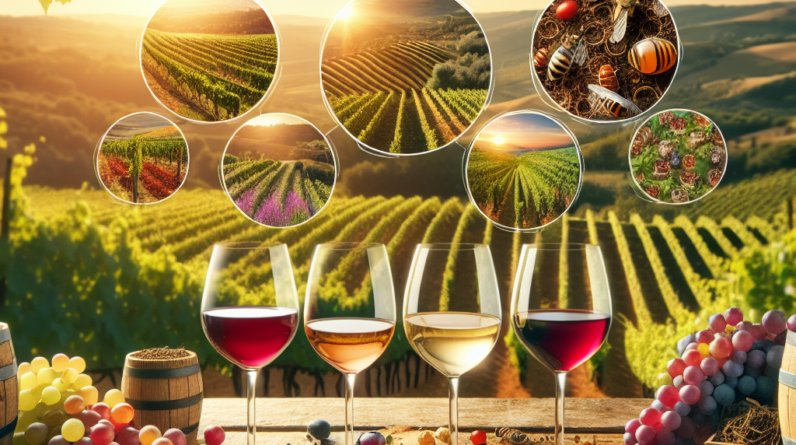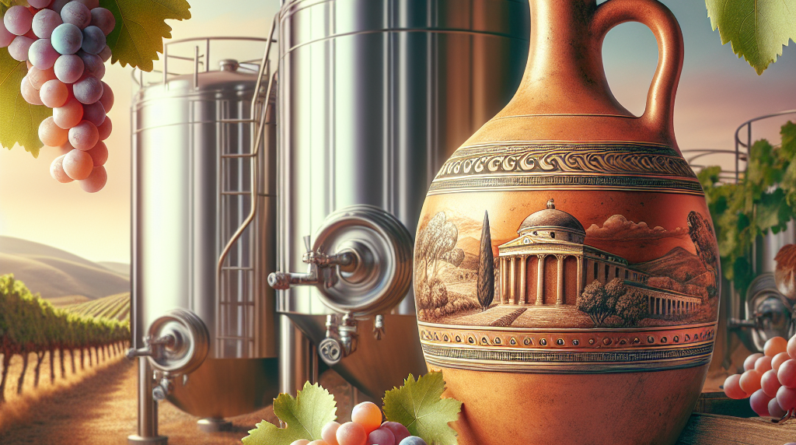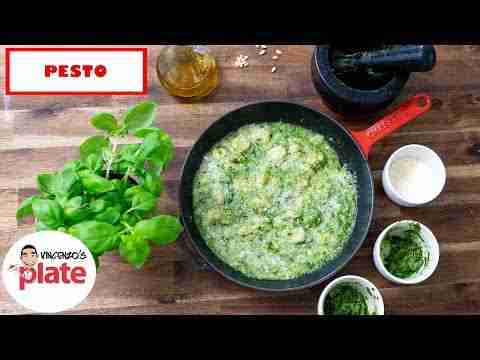Introduction
Italy, with its diverse range of terrains and climates, has long been a hallmark of traditional winemaking. From the rolling hills of Tuscany to the sun-soaked landscapes of Sicily, Italian wines are celebrated around the world for their quality, diversity, and heritage. However, a new movement is catching fire among Italian vintners: biodynamic winemaking. Combining principles of organic farming with holistic, ecological, and even spiritual practices, biodynamic wines are gaining prominence for their unique flavors and sustainable approach. This article delves into the allure of Italian biodynamic wines, exploring the philosophy behind them, their benefits, and why they are becoming an essential part of the wine industry.
What is Biodynamic Winemaking?
Biodynamic winemaking is grounded in the ideas of Austrian philosopher Rudolf Steiner, formulated in the early 20th century. The approach goes beyond organic farming, introducing a holistic framework that treats vineyards as living ecosystems. This method involves:
- Biodiversity: Encouraging a variety of plants and animals to foster a natural balance.
- Soil Health: Utilizing organic compost and preparations made from herbs, minerals, and manure to enrich the soil.
- Celestial Cycles: Aligning farming activities with lunar and cosmic rhythms to enhance growth and vitality.
- No Synthetic Chemicals: Keeping the vineyards free from synthetic pesticides and fertilizers, ensuring a natural farming environment.
The emphasis on sustainability, ecological harmony, and celestial rhythms distinguishes biodynamic winemaking from conventional and even organic practices.
The Italian Terroir and Its Influence
Italy’s geography provides an ideal setting for biodynamic agriculture. The country’s varied microclimates and rich soils offer a fertile ground for growing grapes biodynamically. The combination of altitude, climate, and soil composition in regions like Piedmont, Tuscany, and Sicily allows for distinct grape varieties that reflect their unique terroir. True to the spirit of biodynamic farming, Italian vintners are creating wines that capture the essence of their land, leading to distinctive flavors and nuanced profiles.
The Distinctiveness of Biodynamic Wines
Biodynamic wines stand out for multiple reasons. There is a growing belief among sommeliers and connoisseurs that these wines offer:
- Enhanced Flavor Complexity: The holistic approach to farming and winemaking tends to produce wines with layered, vibrant flavors.
- Natural Fermentation: Biodynamic wines often undergo fermentation with native yeasts found in the vineyard, contributing to unique aromas and tastes.
- Expressive Terroir: Since biodynamic farming enhances soil health and vine vitality, the resultant wines offer a pure expression of their terroir.
- Sustainable Practices: Consumers are increasingly seeking wines made through sustainable practices, making biodynamic wines a preferred choice for the eco-conscious.
Italian Biodynamic Wineries to Know
Several Italian wineries have become pioneers in the biodynamic movement, leading by example and earning international acclaim. Here are a few noteworthy names:
1. Azienda Agricola Cos, Sicily
Azienda Agricola Cos is one of Sicily’s leading biodynamic wineries, specializing in autochthonous grape varieties like Nero d’Avola and Frappato. Their commitment to natural winemaking practices results in expressive, vibrant wines that epitomize Sicilian terroir.
2. Domaine de La Romanée-Conti, Piedmont
This Piedmont-based winery embraces biodynamic principles to craft exceptional Barolos and Barberas. Their commitment has captured the affection of wine enthusiasts globally, offering wines that are both powerful and deeply nuanced.
3. Castello dei Rampolla, Tuscany
Located in the heart of the Chianti Classico region, Castello dei Rampolla has a long history of honoring the land. They transitioned to biodynamic farming to preserve the natural vitality of their vineyards, producing Sangiovese-based wines with unparalleled complexity.
The Growing Market and Demand
The global market for biodynamic wines is expanding rapidly. Italy, already a renowned wine exporter, is seeing a surge in demand for biodynamic products in countries like the United States, Canada, and Japan. This shift in consumer preference reflects a broader awareness of sustainability and an appreciation for wines that offer more than just good taste. Italian biodynamic wines captivate not only for their flavors but also for their commitment to environmental stewardship and ethical farming.
Buying and Enjoying Italian Biodynamic Wines
When purchasing Italian biodynamic wines, it’s beneficial to look for certifications such as Demeter or Biodyvin, which ensure authenticity. Additionally, wine shops and online retailers specializing in natural or organic wines often carry biodynamic selections.
Pairing biodynamic wines with food can enhance the dining experience. For example:
- Light Whites: Pair with seafood, light pasta dishes, and salads.
- Full-bodied Reds: Complement rich meats, aged cheeses, and hearty stews.
- Rosés and Sparkling Wines: Ideal for aperitifs, light appetizers, and fragrant dishes.
FAQs
1. What makes biodynamic wine different from organic wine?
Biodynamic wines are made using organic practices but also incorporate holistic and celestial principles. This includes the use of biodynamic preparations and alignment with lunar cycles, setting biodynamic wines apart in their farming and winemaking processes.
2. Are biodynamic wines healthier?
While there’s no direct scientific evidence to claim biodynamic wines are healthier, they are free from synthetic chemicals and often contain lower sulfite levels. Many consumers believe that wines made from grapes grown in healthy, vibrant soils offer more natural flavors and benefits.
3. How can I identify a biodynamic wine?
Look for certifications such as Demeter or Biodyvin on the label. Also, consult the winery’s website or ask wine retailers knowledgeable about organic and biodynamic wines.
4. Can biodynamic winemaking be applied to all types of wine?
Yes, biodynamic winemaking can be applied to various types of wine, including reds, whites, rosés, and sparkling wines. The principles are adaptable to different grape varieties and wine styles.
5. Are biodynamic wines more expensive?
Biodynamic wines can be pricier due to the intensive labor and lower yields involved. However, many enthusiasts find the added cost worthwhile for the enhanced flavor and sustainability benefits.
Conclusion
The allure of Italian biodynamic wines lies in their commitment to ecological balance, sustainable practices, and the deep-rooted connection to their land. As more people seek authentic, responsible products, biodynamic wines represent not just a trend but a meaningful shift in how wine is crafted and enjoyed. Italy’s dedication to this artisanal approach continues to elevate its wine industry, delighting palates and setting benchmarks for future winemaking.
If you enjoyed this article and want to learn more about Italian Cuisine, please visit https://pizzapartiesofamerica.com/









